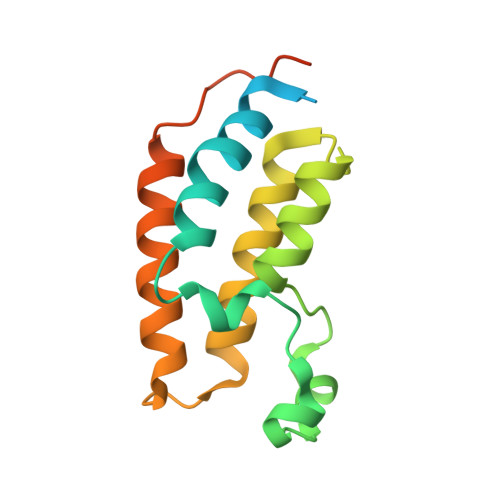Fragment-Based Discovery of Bromodomain Inhibitors Part 2: Optimization of Phenylisoxazole Sulfonamides.
Bamborough, P., Diallo, H., Goodacre, J.D., Gordon, L., Lewis, A., Seal, J.T., Wilson, D.M., Woodrow, M.D., Chung, C.W.(2012) J Med Chem 55: 587
- PubMed: 22136469
- DOI: https://doi.org/10.1021/jm201283q
- Primary Citation of Related Structures:
4A9M, 4A9N, 4A9O, 4ALH - PubMed Abstract:
Bromodomains are epigenetic reader modules that regulate gene transcription through their recognition of acetyl-lysine modified histone tails. Inhibitors of this protein-protein interaction have the potential to modulate multiple diseases as demonstrated by the profound anti-inflammatory and antiproliferative effects of a recently disclosed class of BET compounds. While these compounds were discovered using phenotypic assays, here we present a highly efficient alternative approach to find new chemical templates, exploiting the abundant structural knowledge that exists for this target class. A phenyl dimethyl isoxazole chemotype resulting from a focused fragment screen has been rapidly optimized through structure-based design, leading to a sulfonamide series showing anti-inflammatory activity in cellular assays. This proof-of-principle experiment demonstrates the tractability of the BET family and bromodomain target class to fragment-based hit discovery and structure-based lead optimization.
Organizational Affiliation:
Epinova DPU, Immuno-Inflammation Centre of Excellence for Drug Discovery, GlaxoSmithKline R&D, Medicines Research Centre, Gunnels Wood Road, Stevenage, Hertfordshire SG1 2NY, UK. Paul.a.Bamborough@gsk.com


















